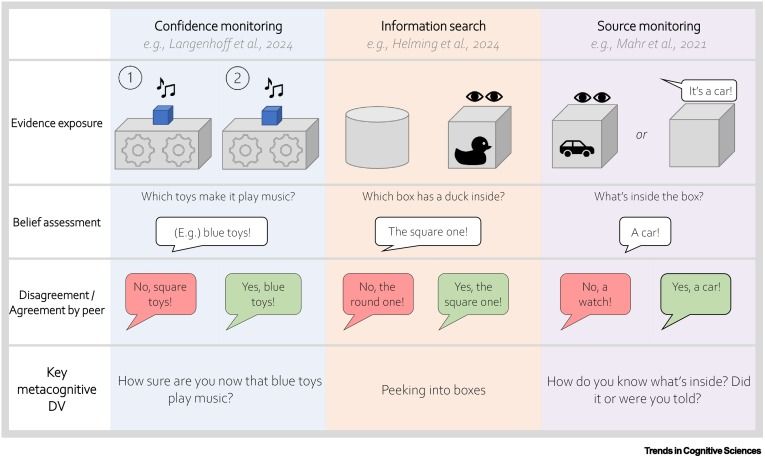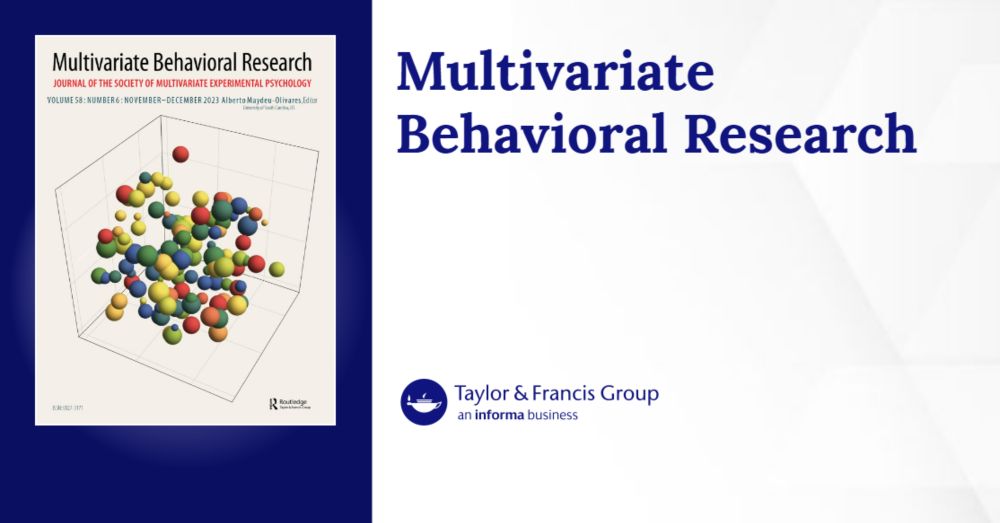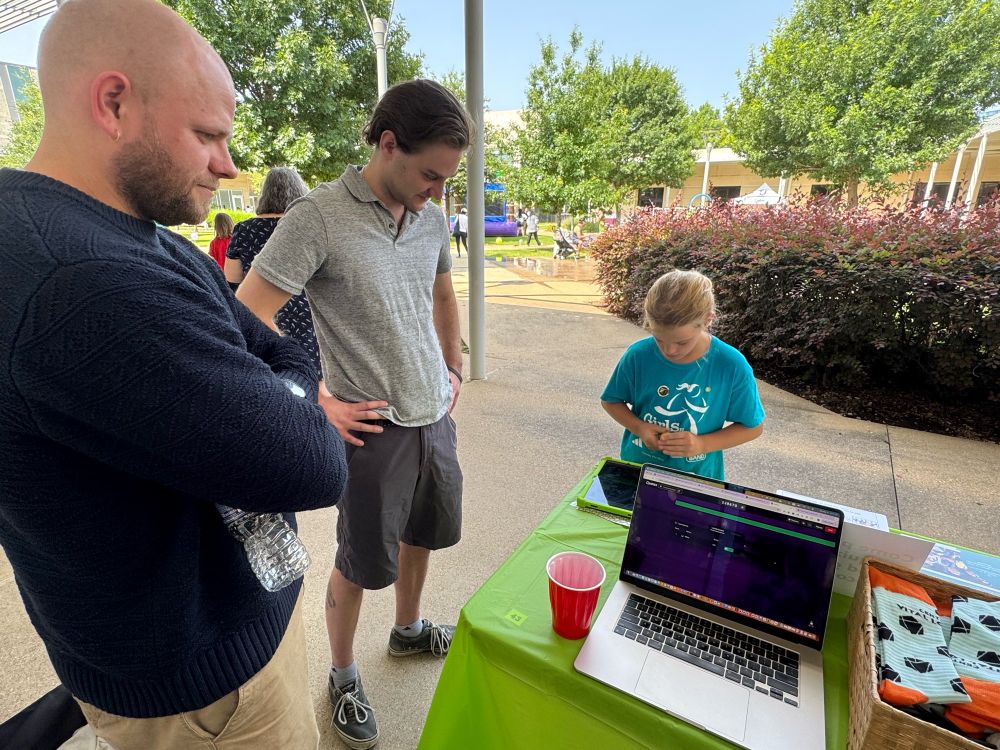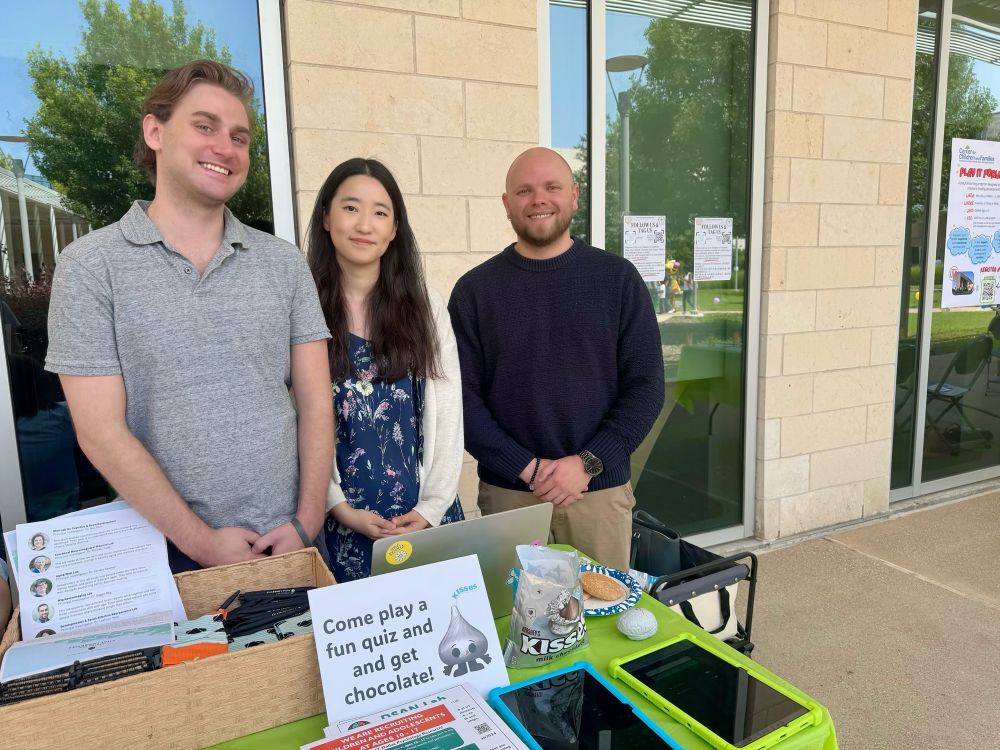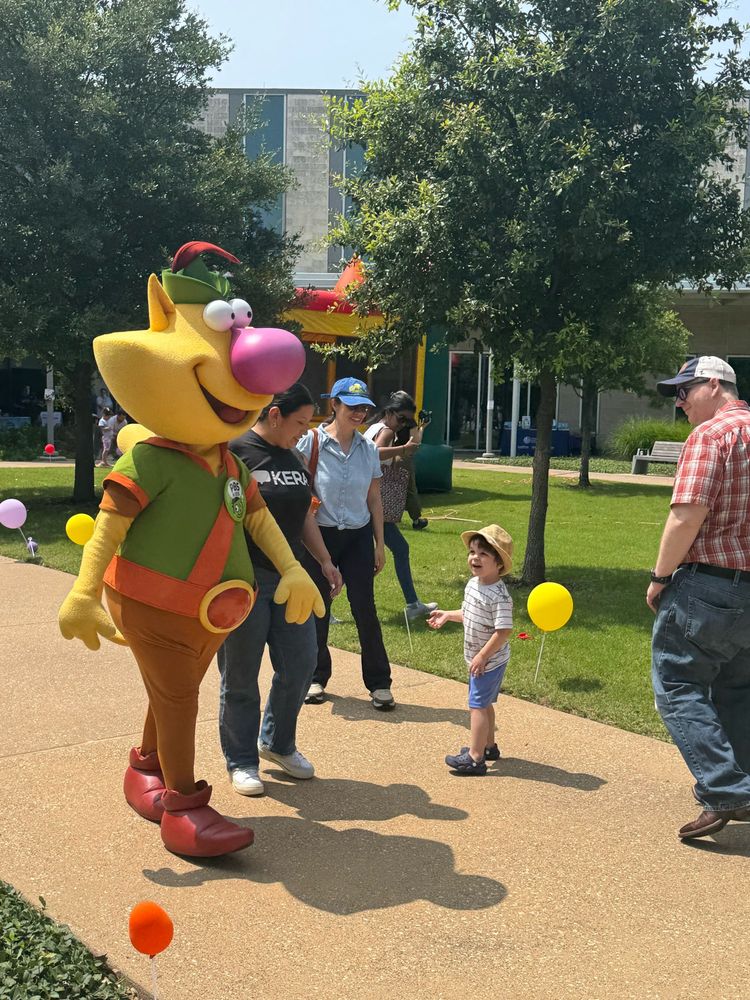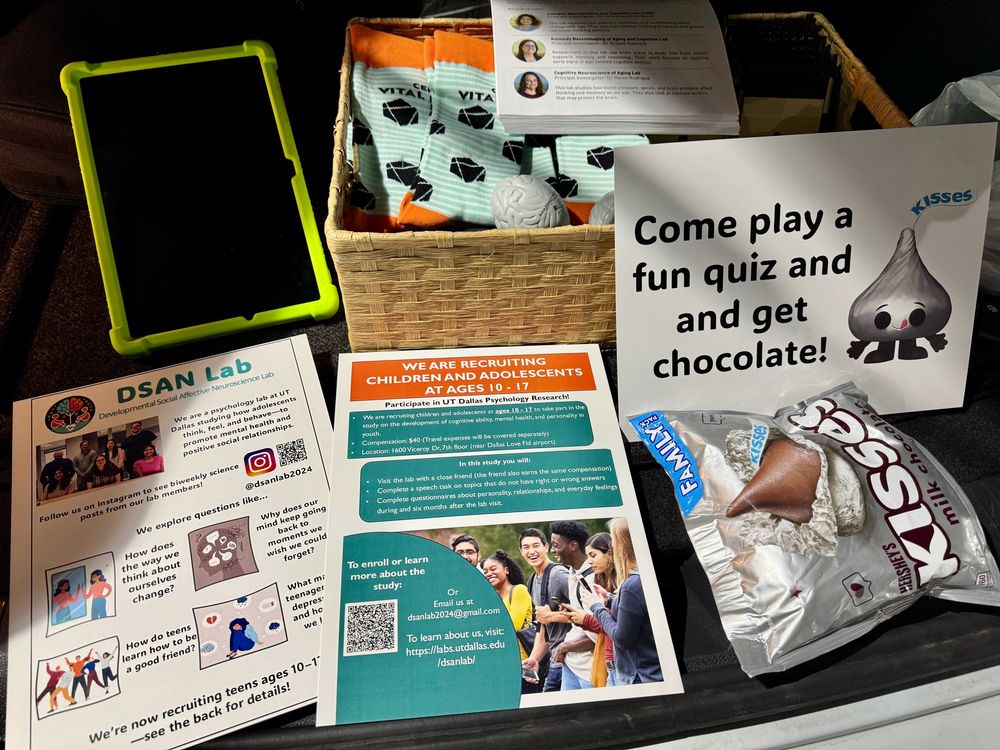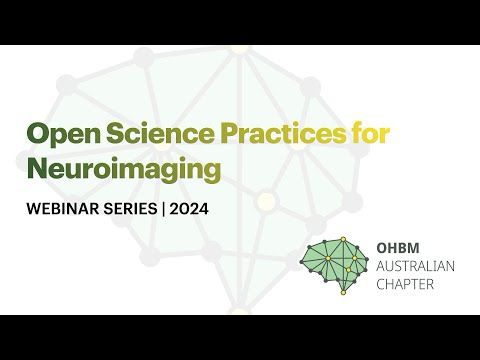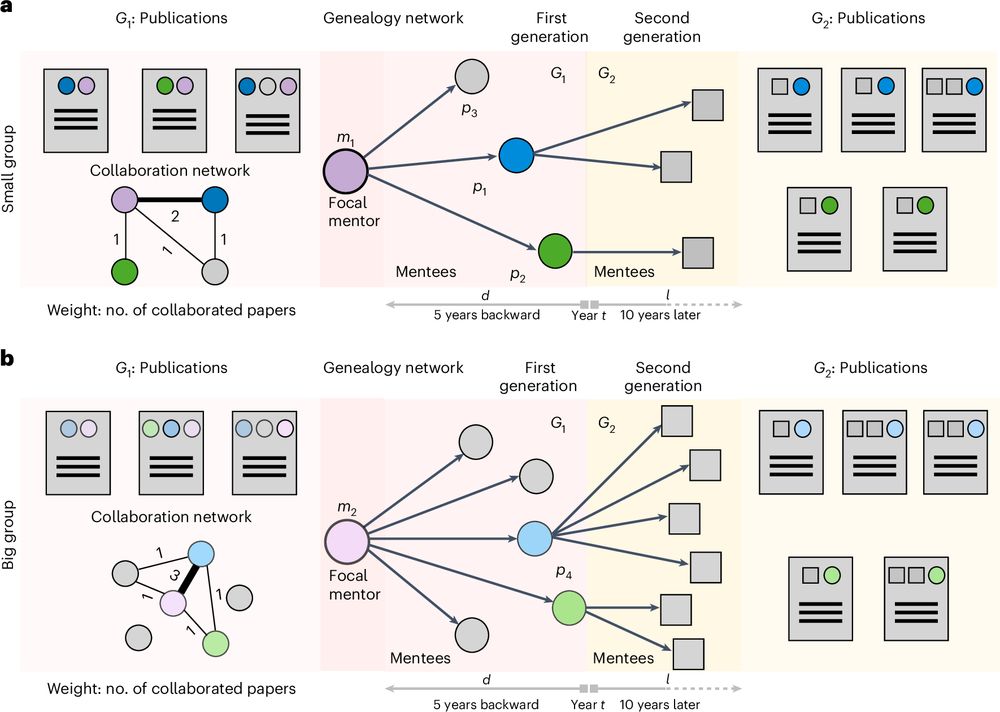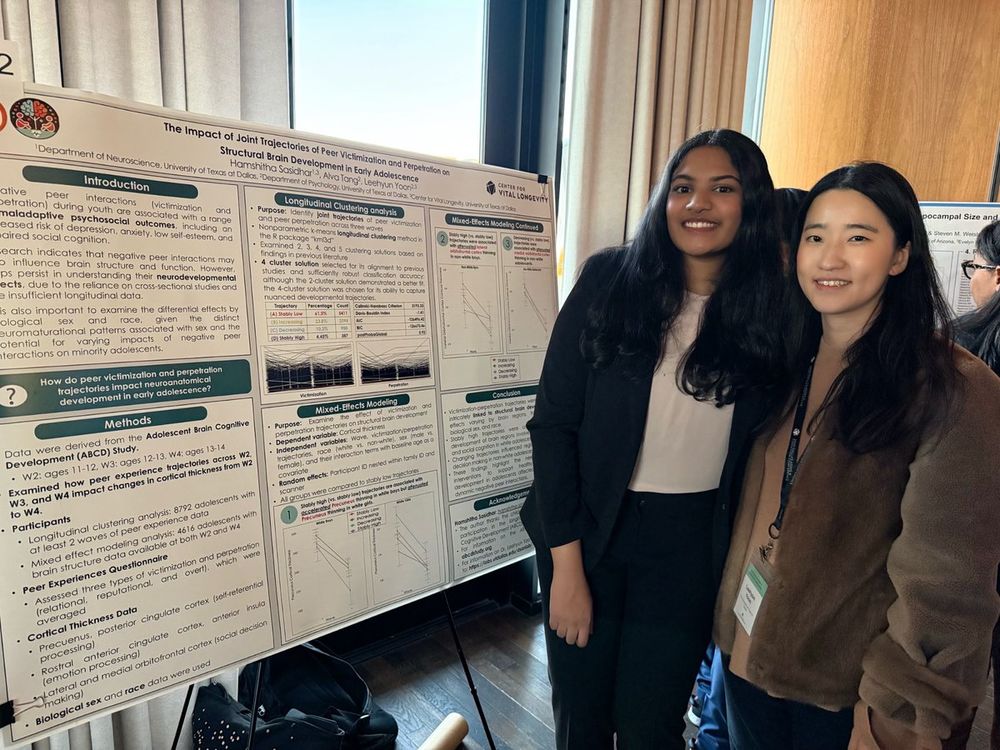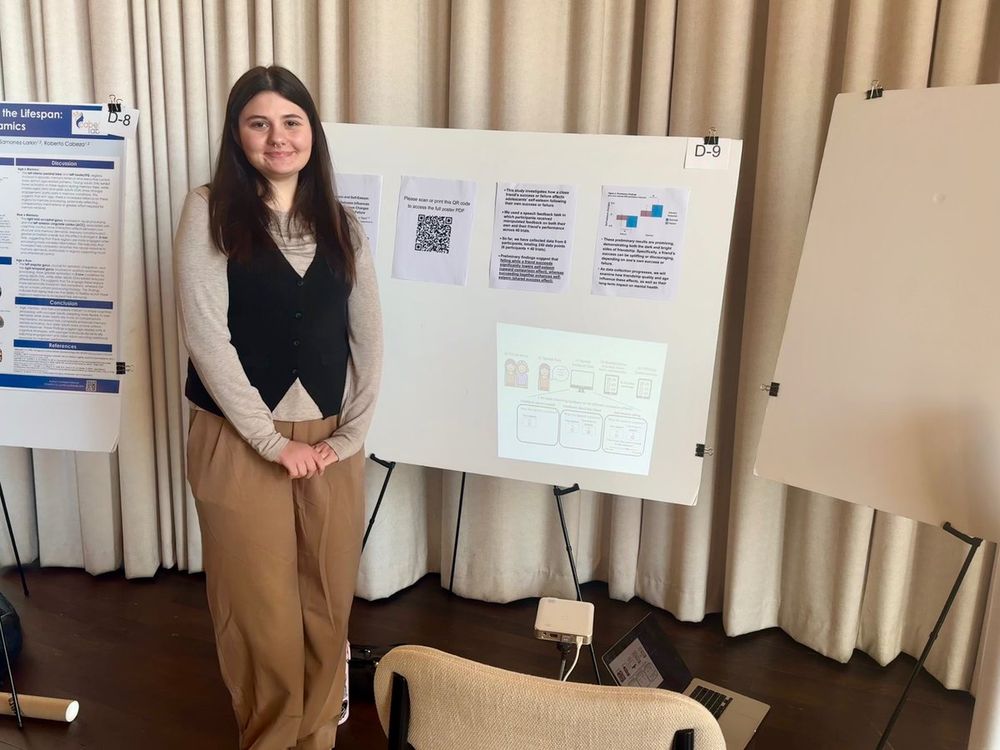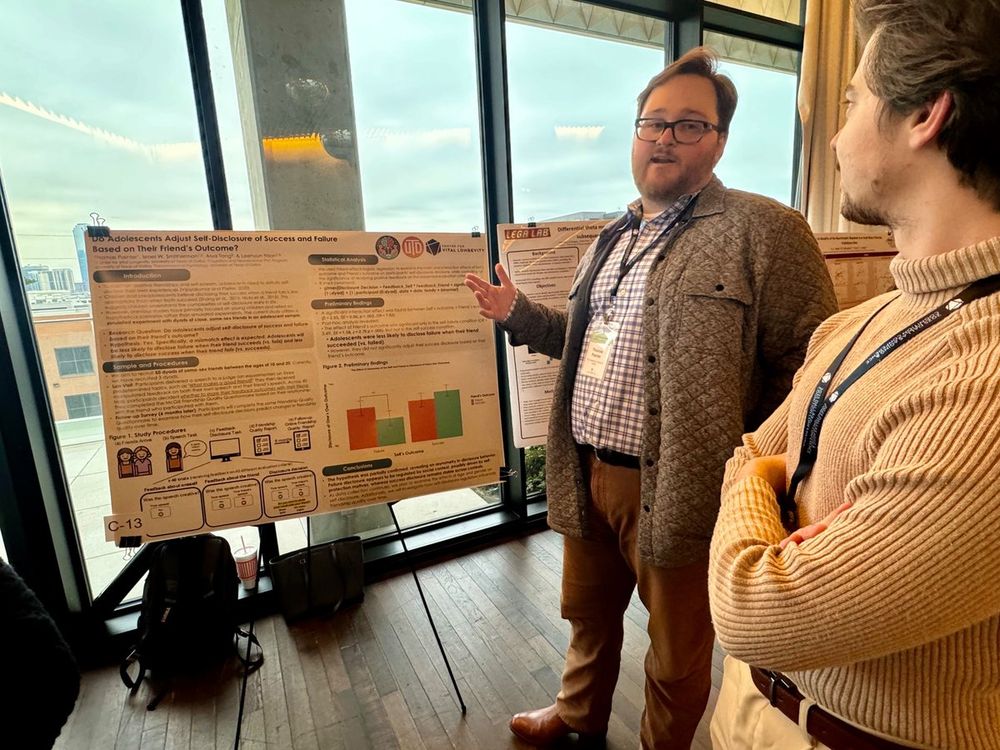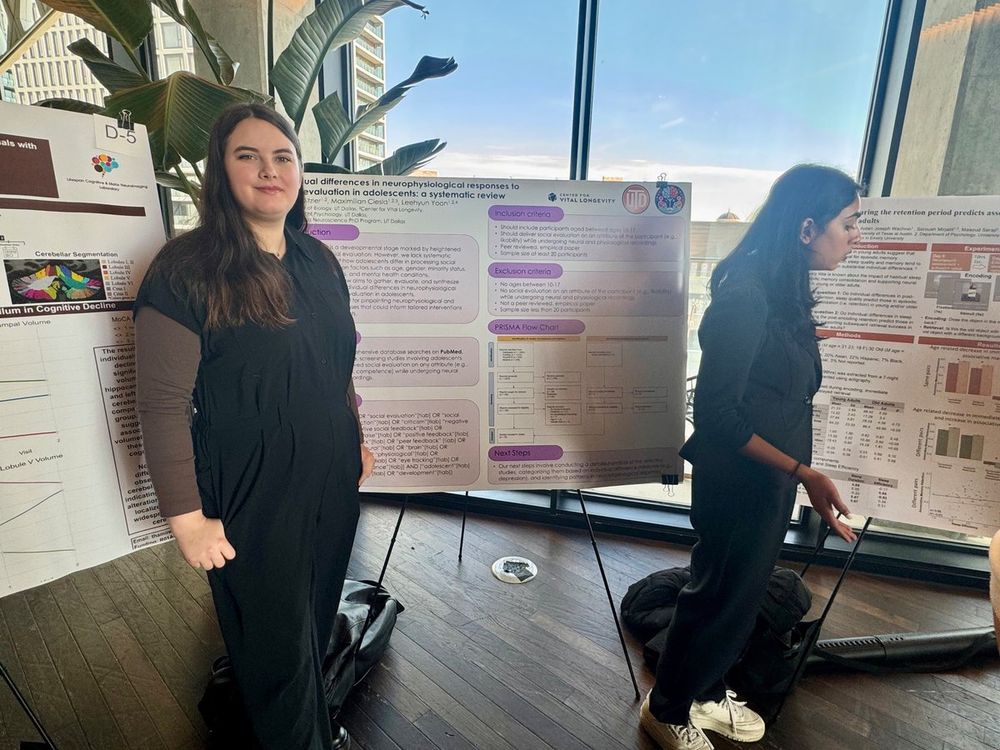
1-Minute Read. Social & Emotional Learning. Why Students Avoid Asking Questions—and How to Change Their Minds. Adapted from: 6 Essential Student Mindsets to Work On This Year
Academic peer pressure arises early: Children as young as 7 years old “begin to connect asking for help w/ looking incompetent in front of others,” researchers concluded in a 2021 study.
But fear of looking dumb is often just half of a reticent student’s calculation.
🧵1/8 #EduSky
03.10.2025 00:25 — 👍 8 🔁 3 💬 1 📌 0

I’ll be reviewing PhD applications for Fall 2026. Our lab investigates healthy self-development, focusing on the socioemotional and neural processes that support or hinder it across adolescence and young adulthood. Info: labs.utdallas.edu/dsanlab/join...
26.09.2025 19:57 — 👍 5 🔁 2 💬 1 📌 0


Our lab just completed our first pilot scanning session! 🧠
It was only possible thanks to the supportive staffs and colleagues who shared their experience with us 🙌 @cvlneuro.bsky.social
20.09.2025 19:32 — 👍 2 🔁 3 💬 0 📌 0

New Open dataset alert:
🧠 Introducing "Spacetop" – a massive multimodal fMRI dataset that bridges naturalistic and experimental neuroscience!
N = 101 x 6 hours each = 606 functional iso-hours combining movies, pain, faces, theory-of-mind and other cognitive tasks!
🧵below
04.09.2025 19:21 — 👍 116 🔁 58 💬 3 📌 3
CCN Lab
🚨 We’re hiring! The Computational Cognitive Neuroscience Lab at Virginia Tech is looking for a postdoc to join our team studying the neural + computational mechanisms of structure learning and flexible cognition: ccnvt.github.io#positions
10.07.2025 12:17 — 👍 29 🔁 19 💬 1 📌 1
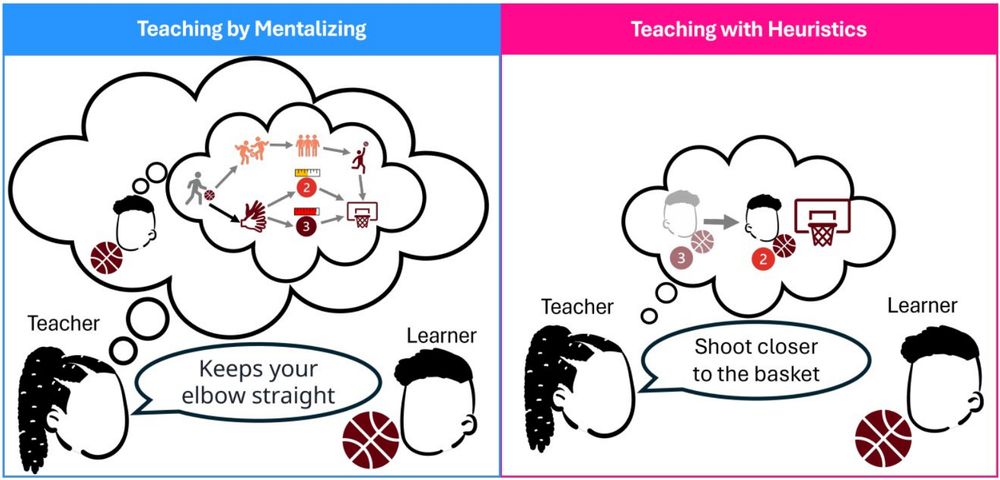
🚨 New preprint alert! 🚨
Thrilled to share new research on teaching!
Work supervised by
@cocoscilab.bsky.social, @yaelniv.bsky.social, and @markkho.bsky.social.
This project asks:
When do people teach by mentalizing vs with heuristics? 1/3
osf.io/preprints/os...
19.05.2025 18:44 — 👍 33 🔁 14 💬 2 📌 1
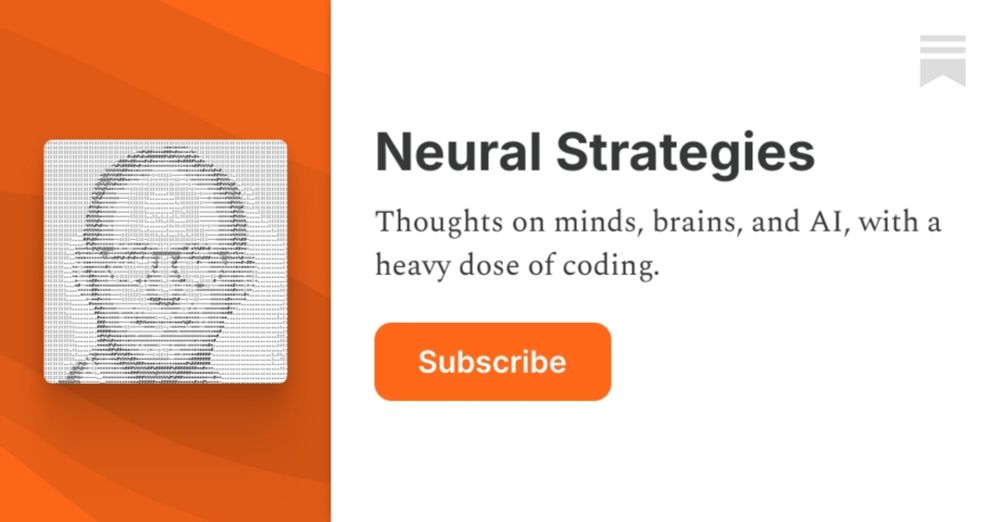
Introducing the Neural Strategies Substack
Allow me to (re)introduce myself
I've decided to start my own Substack, called Neural Strategies: russpoldrack.substack.com/p/introducin... - I will soon start releasing content from a new open-source book I'm developing, tentatively titled "Better Code, Better Science". Subscribe to receive each new section as soon as I post it!
13.05.2025 20:13 — 👍 69 🔁 10 💬 1 📌 0
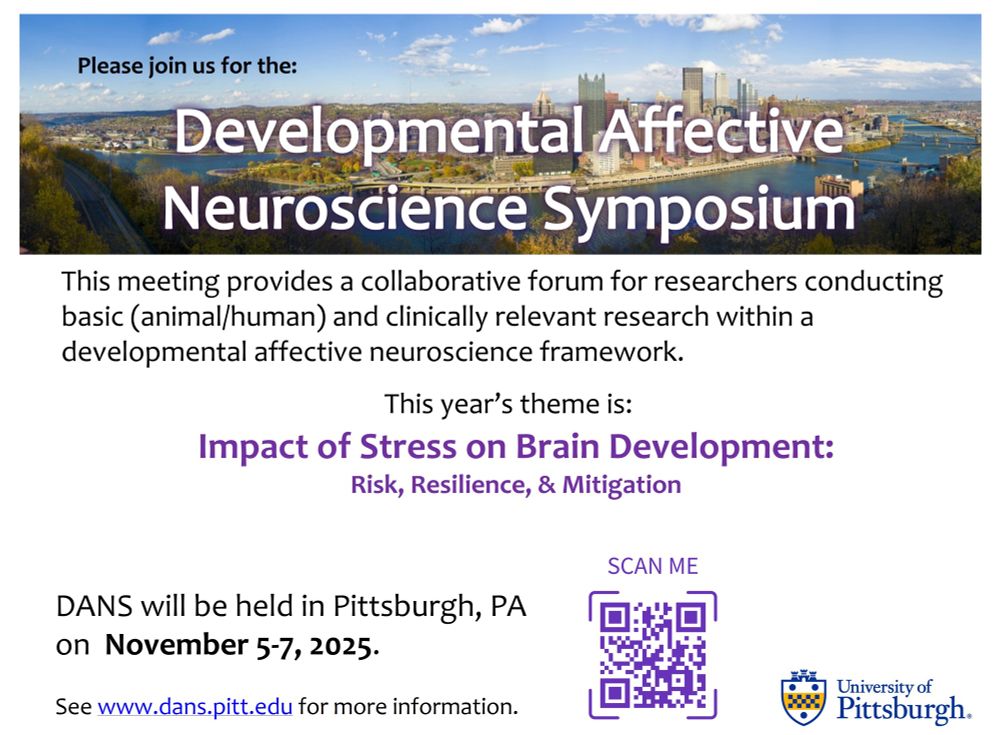
DANS is happening!! 🎉🎉
Mark your calendars and please spread the word!
12.05.2025 20:26 — 👍 8 🔁 3 💬 0 📌 0
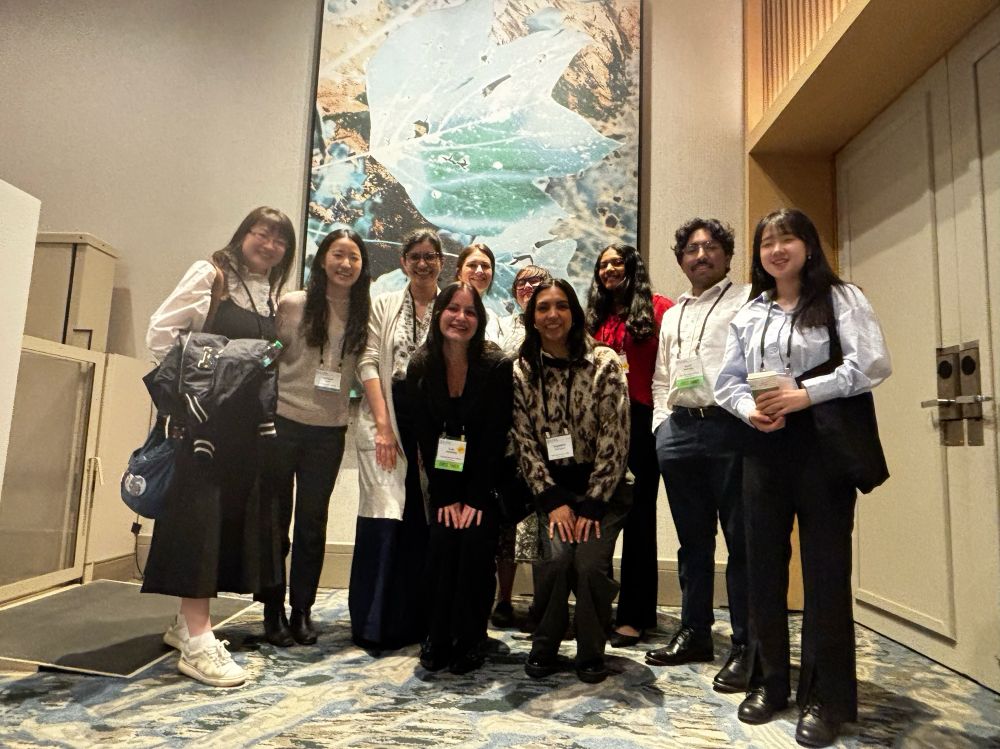
UTD Psych labs at @sansmeeting.bsky.social! So wonderful to be together with colleagues and students. Huge thanks to the organizers for making SANS 2025 such a meaningful experience!
25.04.2025 01:04 — 👍 3 🔁 2 💬 0 📌 0
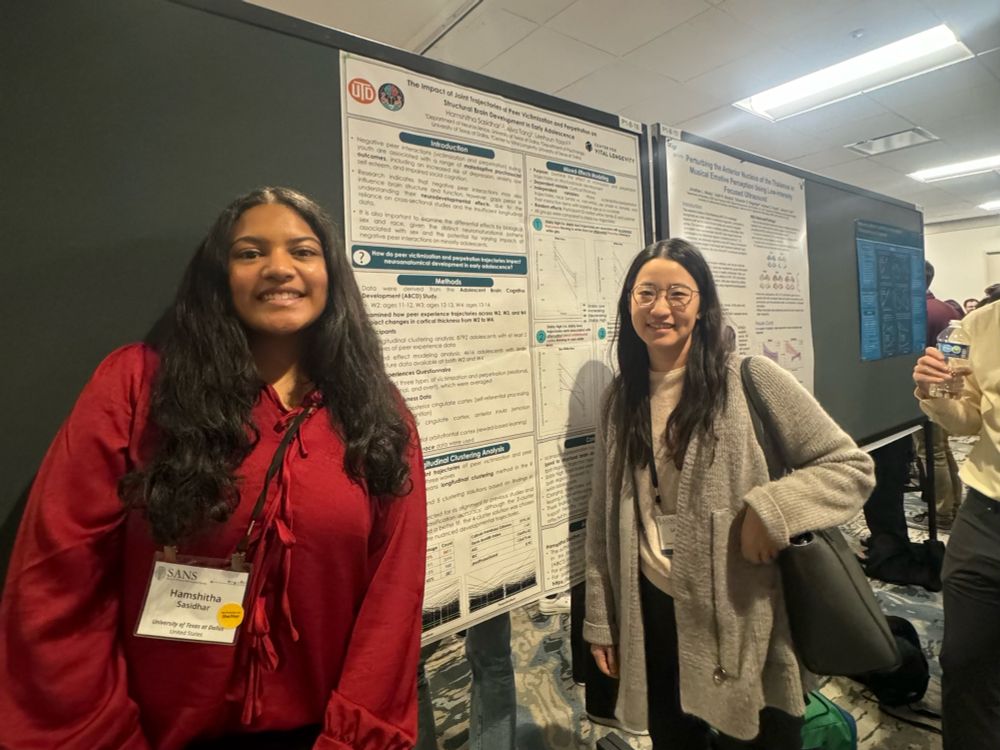
The DSAN Lab’s first presentation at
@sansmeeting.bsky.social
! Our amazing undergraduate student, Hamshitha, presented our work on how joint trajectories of victimization and perpetration impact structural brain development in early adolescence.
@cvlneuro.bsky.social
24.04.2025 23:57 — 👍 6 🔁 4 💬 0 📌 0
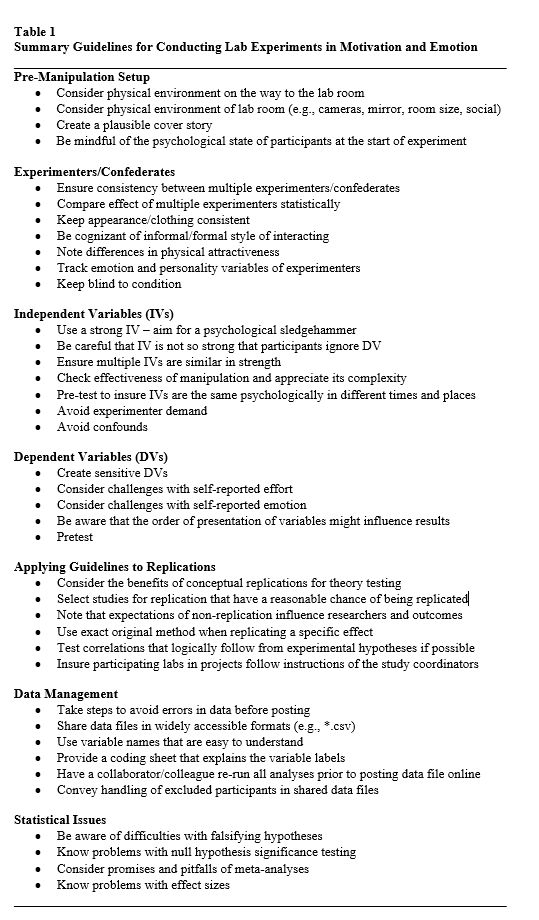
Table 1
Summary Guidelines for Conducting Lab Experiments in Motivation and Emotion
___________________________________________________________________________
Pre-Manipulation Setup
• Consider physical environment on the way to the lab room
• Consider physical environment of lab room (e.g., cameras, mirror, room size, social)
• Create a plausible cover story
• Be mindful of the psychological state of participants at the start of experiment
Experimenters/Confederates
• Ensure consistency between multiple experimenters/confederates
• Compare effect of multiple experimenters statistically
• Keep appearance/clothing consistent
• Be cognizant of informal/formal style of interacting
• Note differences in physical attractiveness
• Track emotion and personality variables of experimenters
• Keep blind to condition
Independent Variables (IVs)
• Use a strong IV – aim for a psychological sledgehammer
• Be careful that IV is not so strong that participants ignore DV
• Ensure multiple IVs are similar in strength
• Check effectiveness of manipulation and appreciate its complexity
• Pre-test to insure IVs are the same psychologically in different times and places
• Avoid experimenter demand
• Avoid confounds
Dependent Variables (DVs)
• Create sensitive DVs
• Consider challenges with self-reported effort
• Consider challenges with self-reported emotion
• Be aware that the order of presentation of variables might influence results
• Pretest
Applying Guidelines to Replications
• Consider the benefits of conceptual replications for theory testing
• Select studies for replication that have a reasonable chance of being replicated
• Note that expectations of non-replication influence researchers and outcomes
• Use exact original method when replicating a specific effect
• Test correlations that logically follow from experimental hypotheses if possible
• Insure participating labs in projects follow instructions of the study coordinators
Data Management
• Take steps to avoid errors i…
Very useful set of guidelines for conducting social psychology lab experiments by @eddiehj.bsky.social, @davidamodio.bsky.social, and colleagues.
Preprint: doi.org/10.31234/osf...
Few quotes follow…
11.04.2025 08:37 — 👍 75 🔁 22 💬 1 📌 3
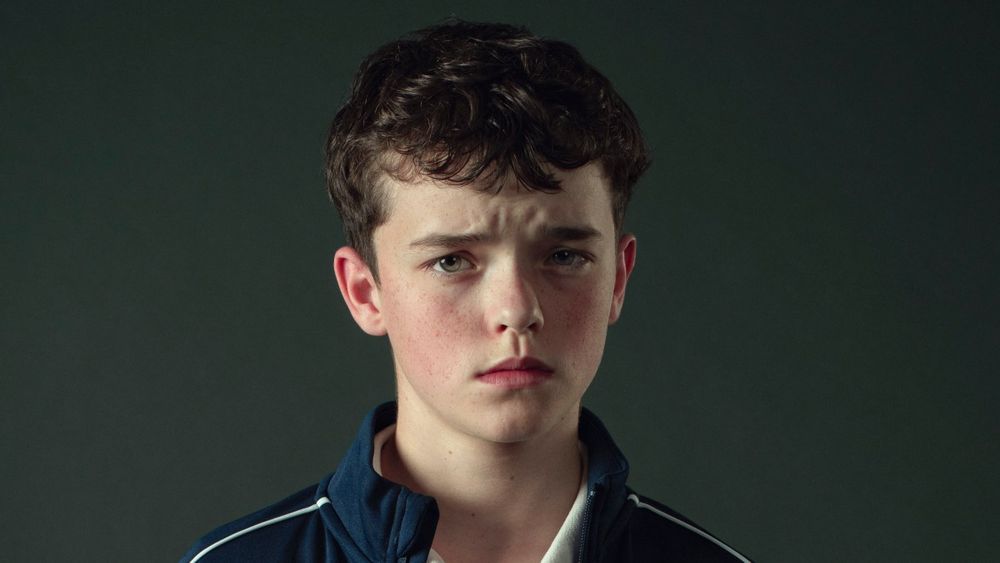
What Adolescence gets right (and wrong) about teen boys’ brains
It may make for a compelling drama, but young men’s minds are more complex, says one neuroscientist
I wrote an Article about the Netflix drama, Adolescence.
I’ll try to post the pdf because it’s behind a paywall (but you might be able read it for free below)
www.thetimes.com/life-style/p...
07.04.2025 06:40 — 👍 18 🔁 7 💬 3 📌 3
YouTube video by OHBM Australia
2024 Webinar Series: Open Science Practices for Neuroimaging
For those interested in brain visualisations and open science practices refer to this amazing webinar series by the OHBM Australia community hosted by @natashaltaylor.bsky.social.
Featured speakers:
@sidchop.bsky.social
@sinamansourl.bsky.social
@sbollmann.bsky.social
youtube.com/watch?v=RTy5...
02.04.2025 22:28 — 👍 13 🔁 6 💬 0 📌 0
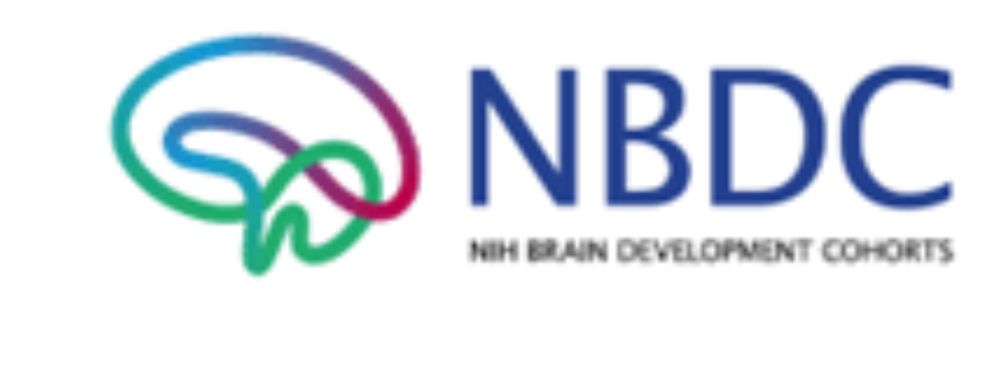
Data Sharing - ABCD Study
FYI, if you want to be prepared to apply for the next ABCD Study data release, prepare for these new NIST security requirements 🧠: @ohbmofficial.bsky.social abcdstudy.org/scientists/d...
31.03.2025 17:53 — 👍 47 🔁 28 💬 1 📌 2
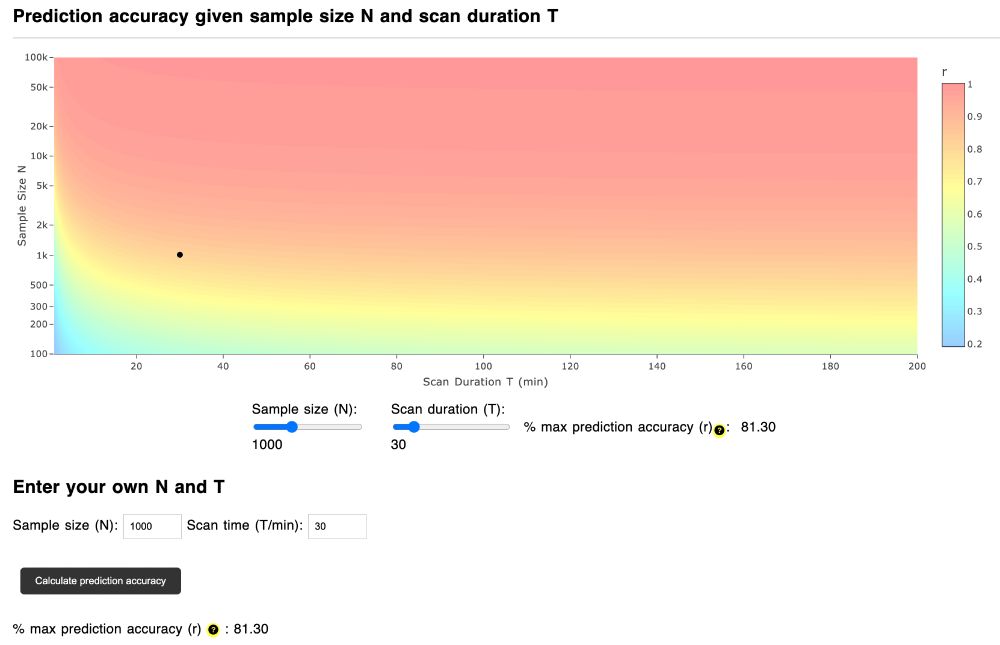
Thanks to everyone's feedback, we have updated our calculator to optimize sample size N & scan time T for fMRI studies: leonoqr.github.io/ORSP_Calcula...
The first new feature is that users can explore how different N & T leads to different accuracy, e.g., N=1000 & T=30min => 81% max accuracy. 🧵
24.01.2025 00:02 — 👍 138 🔁 58 💬 6 📌 3
Thank you so much for starting this! I would love to be added.
14.03.2025 15:29 — 👍 1 🔁 0 💬 1 📌 0
There's a lot of evidence of the harms of smacking children.
There's also evidence that children and young people learn more from rewards than from punishment, including this computational study by @stepalminteri.bsky.social
journals.plos.org/ploscompbiol...
06.03.2025 17:53 — 👍 22 🔁 5 💬 0 📌 0


Coming to a Zoom near you!
The affective gradient hypothesis: An affect-centered account of motivated behavior - Dr. Amitai Shenhav
25.02.2025 16:12 — 👍 5 🔁 4 💬 1 📌 7
Streamlined uploading, and more updates inspired by your feedback
by Alejandro de la Vega
Hey neuroimagers!
We've updated NeuroVault.org in response to feedback from the community.
Uploading new images and browsing existing collections is now streamlined and more user friendly.
Check out the new changes in this post. Feedback welcome!
neurovault.github.io/updates/2025...
20.02.2025 23:49 — 👍 9 🔁 5 💬 1 📌 0
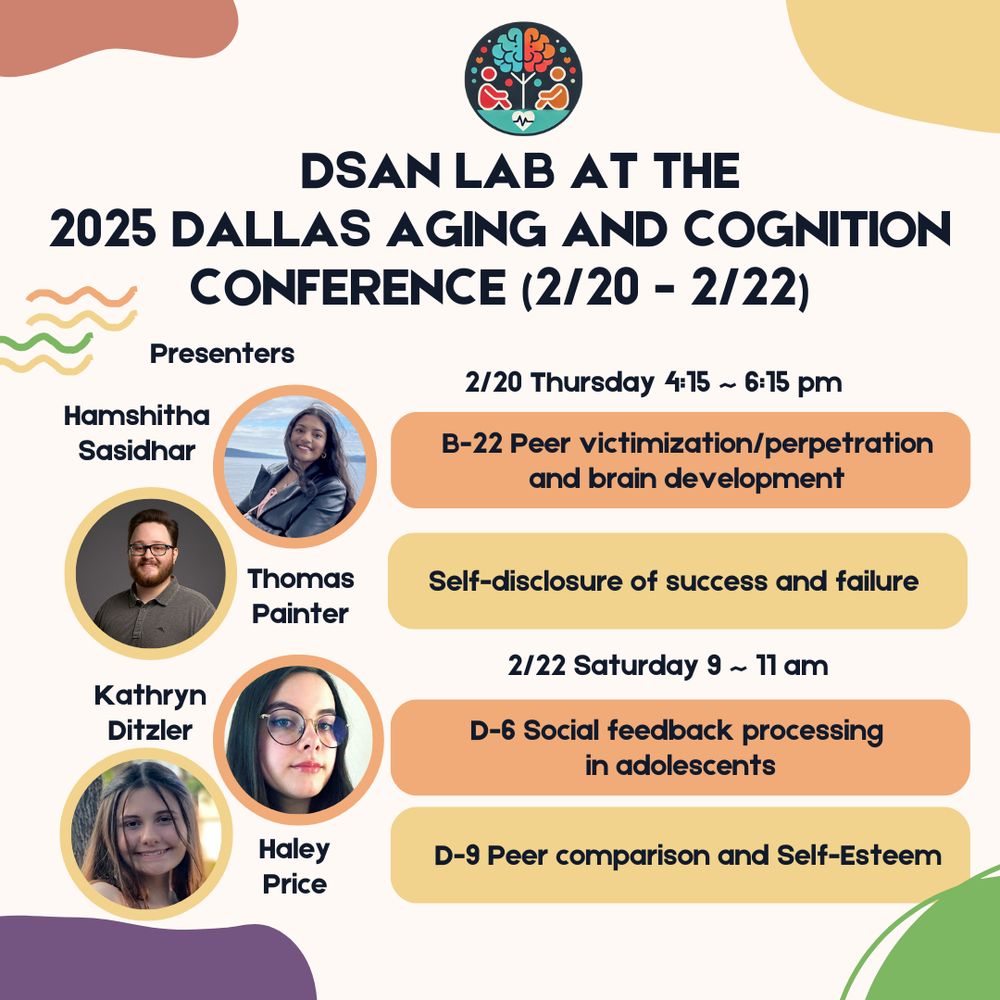
DSAN Lab is presenting at DACC 2025 @cvlneuro.bsky.social, contributing to its expansion into developmental research! 🎉 Visit us to explore and discuss our preliminary work on adolescent development in social-emotional contexts.
20.02.2025 05:42 — 👍 1 🔁 1 💬 0 📌 0

A User’s Guide to Midlife
Experts weigh in on the most vexing issues and changes — and how to deal with them.
We’re excited to share that Dr. Gagan Wig was recently featured in The NYT for his expertise on cognition and aging in the article ‘A User’s Guide to Midlife.’ We’re incredibly proud of his continued impact on the field! 👏
Check out the full article:👇👇
www.nytimes.com/interactive/...
06.02.2025 23:00 — 👍 6 🔁 3 💬 0 📌 0
Understanding mindfulness and meditative states using pattern recognition to detect mental states. A brief perspective with Jarrod Lewis-Peacock and Todd Braver.
authors.elsevier.com/c/1kUbL8jVtv...
30.01.2025 02:10 — 👍 10 🔁 4 💬 1 📌 0
Received an e-mail asking if we could share the materials of our version of the Anger Incentive Delay Task- they can be found at this link. Note that the codebase is for E-prime
osf.io/4jmeb
27.01.2025 17:00 — 👍 7 🔁 2 💬 0 📌 0
Research Coordinator for @dammi-lab.bsky.social | Aspiring Neuroscientist | Excited nerd 🧠📖 🤓
www.linkedin.com/in/emlamb0416
Cognitive Neuroscience, PhD
Postdoc @Stanford, PhD @Dartmouth
Mapping neural representations of the "future" | How do expectations about people, pain, and possibilities shape perception in real-time?
jungheejung.github.io
https://labs.utdallas.edu/abcneurodevlab/
We leverage neurodevelopment to identify emerging psychopathology and promote healthy development-using clinical interviews, physiological measures, behavioral paradigms, cognitive testing, and neuroimaging (MRI).
Postdoc in the Developmental Neuroimaging and Bray Neuroimaging Labs at @UCalgary 🇨🇦 | BRAIIINNNSSS 🧠 | White matter | diffusion MRI | Executive functions | Response inhibition
ResearchGate: https://www.researchgate.net/profile/Mervyn-Singh-2
Neural Mechanisms of Stress Vulnerability & Resilience 🧠 | Incoming Assistant Professor @Haifa University 👨🏫 | Postdoctoral Fellow @Yale University 🎓
Cognitive neuroscientist exploring how the brain learns, decides, and generalizes. 🧠 http://ccnvt.github.io
Senior writer at @chronicle.com, writing about scholarship, scholars, and society. stephanie.lee@chronicle.com / Signal: stephaniemlee.07 / stephaniemlee.com / San Francisco
Clinical Psych PhD @ Emory | Penn ‘23 🧠
We are a developmental computational cognitive neuroscience lab at Northeastern University in Boston https://lbdlpsych.sites.northeastern.edu/
Assistant Professor of Cognitive Neuroscience | UConn Psych Sciences | attention, cognition, mental health, development, environment, personalized neuroscience
arielleskeller.wixsite.com/attention
appliedcognitionlab.psychology.uconn.edu
opinions my own
🧠Developmental neuroscientist at @waynemedicine studying childhood trauma, endocannabinoids, & youth mental health. Let's connect: https://msha.ke/wsuthinklab
Interests in developmental psychopathology, measurement, and brain function. Prof. Aficionado of bad jokes.
Postdoctoral researcher at the Center for Vital Longevity, UT Dallas, studying children's memory with intracranial EEG. My name is pronounced as 'Cheen'.
Pediatric Neuroimaging Lab in the Department of Population and Public Health Sciences
Neuroimaging | Brain development | Sex differences | Air pollution | USC
A/Prof at the Matilda Centre, USYD. Understanding, classifying and preventing risky alcohol use across the lifespan.
Psychologist studying mental health risk and resilience in young people with childhood adversity.
www.mxkoenig.com
Professor of Psychiatry & Psychology, University of Pittsburgh. Child Psychologist. Director, Cognitive-Affective Neuroscience & Development Lab. Mom of 4







